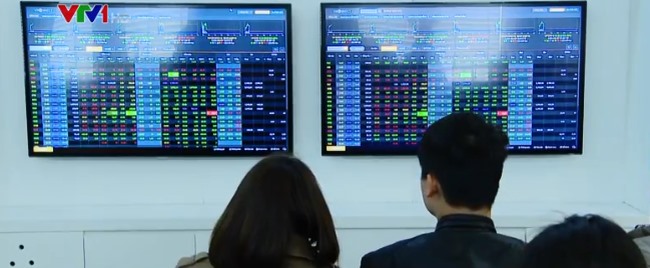 Economy
Economy

Trading liquidity on the derivatives market has fallen for the last five sessions after the new trading fees came into effect on February 15 (last Friday).
 |
| Trading liquidity on the derivatives market has fallen for the past five sessions after the new trading fees came into effect on February 15 (last Friday).— Photo vtv.vn |
HÀ NỘI — Trading liquidity on the derivatives market has fallen for the past five sessions after the new trading fees came into effect on February 15 (last Friday).
On Thursday, a total of 90,354 futures contracts based on the blue-chip VN30 Index were traded on the Hà Nội Stock Exchange’s derivative market.
The figure was down 9.5 per cent from the previous session and down nearly 27 per cent from the number recorded on February 14, just one day before the new trading fees were applied.
Since new trading fees were applied on February 15, the derivatives market’s total trading volume reached more than 438,200 futures contracts and the figure has decreased by nearly 2 per cent from the number of 447,000 contracts recorded in the previous four trading days.
The average trading volume of futures contracts traded on February 11-14 was 111,000 contracts per session while the figure recorded on February 15-21 was only 87,650 contracts per session.
On February 15, investors were charged three new fees when making derivative trades, which are the derivative trading fee (paid to the stock exchange), and derivative position management and collateral management fees (paid to the Vietnam Securities Depository).
All three kinds of fee are collected by brokerage firms. Among them, the position management fee must be paid to the Vietnam Securities Depository (VSD) when investors trade overnight open interest (OI). The collateral management fee is paid when investors deposit their margin-lending money at VSD.
The fees range from VNĐ400,000 (US$17) to VNĐ2 million each month.
The new fees are among the major factors that have dragged the derivatives market down since February 15 as investors have turned to the common stock market.
According to some brokerage firms, investors see their collateral money, which is deposited at VSD, as termless bank saving. There is no need for VSD to collect the collateral management fee from investors, which will keep investors away from making overnight trading and long-term investment in derivatives.
Sài Gòn-Hà Nội Securities (SHS) said in a daily report last week that money tended to flow back to the common stock market from the derivatives market as investors would be less interested in futures contracts with the introduction of three new fees.
The decline of the derivatives market has been the major reason for the improvement of the common stock market in recent days.
The benchmark VN-Index on the Hồ Chí Minh Stock Exchange ended Thursday at 987.57 points, having jumped nearly 3.9 per cent since February 15 with trading volume each day ranging from 170.8 million shares to 232 million shares.
Since its launch in August 2017, the Vietnamese derivatives market saw trading accounts gaining 3.4 times to more than 57,600 at the end of 2018 with total 19.6 million futures contracts being traded, equal to average 78,800 contracts each session. — VNS




